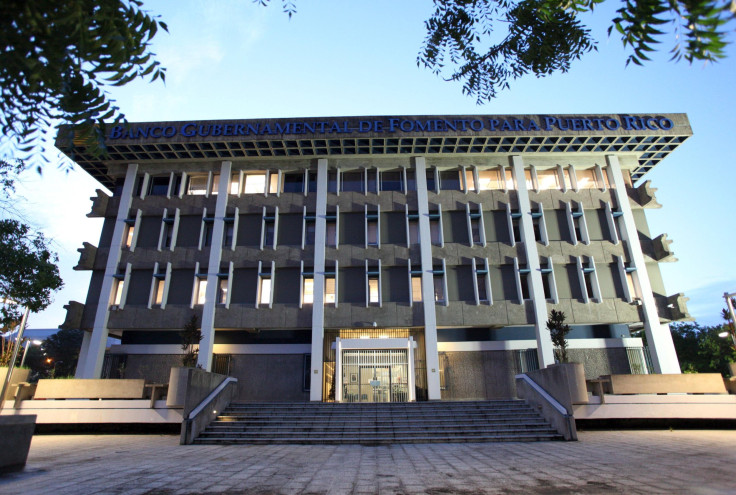Puerto Rico Government Development Bank Reaches Debt Deal With Credit Unions

Puerto Rico’s Government Development Bank said it has reached a deal with credit unions to avoid defaulting on about $33 million of debt due Monday. Puerto Rico’s primary fiscal agent, the GDB said in a statement Friday it was still negotiating with other creditors in hopes of avoiding default on another $422 million due Monday. The terms of the deal struck with the credit unions, according to the statement in Spanish, are also “available to other ... creditors of the GDB, including other institutional bondholders.”
The credit unions will exchange their debt for new notes due May 1, 2017.
The GDB’s indebtedness, about $4 billion in all, is part of a $70 billion debt load in Puerto Rico, the U.S. territory facing a decadelong recession, shrinking population and 45 percent poverty rate. The bank, acting as a liquidity source for the island’s public entities, is negotiating with hedge funds including Claren Road, Fir Tree and Solus in hopes of staving off a default that could threaten services and operations on the island.
Optimism for a deal has been low, with Gov. Alejandro Garcia Padilla saying this week that “there will be a default on Monday,” and a source close to talks telling Reuters there is “no indication” of progress on a deal.
But the accord with credit unions is a sign that talks are still alive. Height Securities analyst Daniel Hanson, who follows Puerto Rico closely, said Friday he remains bullish for a deal with other creditors by Monday. “The idea that GDB has $4 billion of debt due in the next five or six years is problematic, but there’s a really strong incentive to find [a] way to stretch that debt out,” he said.
A default at the GDB would likely mean turning its operations over to a receiver who, under Puerto Rico’s fiscal emergency law passed this month, would have authority to shift the bank’s deposit accounts to a new, bridge entity, while leaving the burdensome debt liabilities at a GDB shell.
The legality of those measures would likely be challenged by creditors in costly lawsuits that could perpetuate economic uncertainty on the island of 3.5 million.
A default would also ratchet up pressure on U.S. Congress to legislate a fix for Puerto Rico. Lawmakers remain locked in dispute over a draft bill that would put Puerto Rico’s finances under federal oversight and allow it to restructure debt.
© Copyright Thomson Reuters 2024. All rights reserved.





















